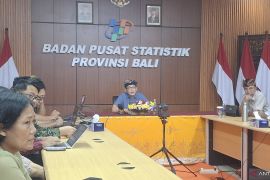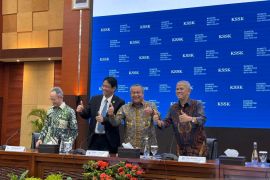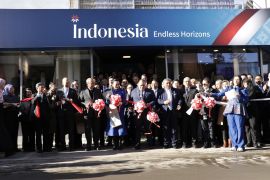The economic growth in the second quarter of 2022 would be fueled by the policy to relax the use of masks, which accelerated public mobility recovery. If the public can carry out outdoor activities freely, then public spending will increase…Jakarta (ANTARA) - Economist and director of the Center for Economic and Law Studies (Celios), Bhima Yudhistira, has forecast that Indonesia's second-quarter economic growth will be recorded in a range of 4.2–4.75 percent year-on-year (yoy).
"The economic growth in the second quarter of 2022 would be fueled by the policy to relax the use of masks, which accelerated public mobility recovery. If the public can carry out outdoor activities freely, then public spending will increase, particularly in the retail and transportation sectors," he said on Monday.
Related news: BI forecasts economic growth of 5.05%for Q2
He predicted that the trade sector would record a growth of 5.5–6.0 percent and the transportation and warehousing sector 16–18 percent yoy.
"The hotel sector will slowly improve due to an increase in the room occupancy rate and income from such events as wedding parties, exhibitions, and meetings or MICE (meetings, incentives, conferences, and exhibitions),” he said.
Compared to the 2009 crisis and the 2013 taper tantrum, the Indonesian economy's resilience has improved, with quite large foreign exchange reserves, which reached US$134.4 billion as of late June 2022, he noted.
Related news: RI capable of leading tourism, creative economy recovery initiative
With a windfall from commodity prices, the rupiah has not corrected as deeply as neighboring countries' currencies. However, the indicator may change quickly so the government needs to take anticipatory measures, he added.
"Bank Indonesia needs to respond to it by raising its benchmark rate. Monetary and fiscal policy mix is urgent. Bank Indonesia can push exporters to convert export foreign exchange earnings to rupiah and use local currency settlement for export goods," he said.
He also suggested that the government test the liquidity adequacy of financing institutions, insurance firms, and banks, and prevent energy prices from disturbing the people's purchasing power.
Related news: CORE sees national economic growth at 5% in Q2
Related news: BI forecasts economic growth of 5.05%for Q2
Translator: Sanya Dinda S, Suharto
Editor: Fardah Assegaf
Copyright © ANTARA 2022












